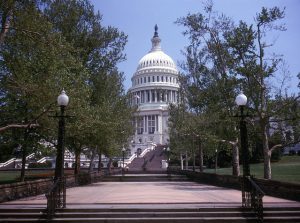Los Angeles Marijuana Industry at Boiling Point
 Ever since cannabis was legalized in California in January 2018, a flood of marijuana businesses have opened, hoping to take their share of the pot market. But it’s no secret that many industry stakeholders are unhappy with the current state of affairs.
Ever since cannabis was legalized in California in January 2018, a flood of marijuana businesses have opened, hoping to take their share of the pot market. But it’s no secret that many industry stakeholders are unhappy with the current state of affairs.
Today there are 182 licensed marijuana dispensaries operating throughout Los Angeles, and many of those business have paid well into the tens of thousands of dollars to operate legally. First by registering their companies and covering licensing fees, then paying city taxes and continually meeting strict safety standards imposed by the state.
Meanwhile, there are countless other outfits operating slightly more under the radar. They are able to skip paying licensing fees and, as predominantly cash run businesses, also avoid paying taxes. To the frustration of legal business owners, rouge pot shops attract a slew of customers with undercut pot prices, prices that legal outfits have a hard time matching given their higher operating costs.
While regulation of cannabis use and sale continues to undergo assessment and tweaking in the state of California, many licensed cannabis business owners have reached boiling point. The biggest reason, illegal pot shops continuing to operate comfortably, with little pressure from state authorities requiring them to toe the line.
Continue reading
 Cannabis Law Group's Medical Marijuana Legal Blog
Cannabis Law Group's Medical Marijuana Legal Blog






 California cannabis users while stirring up the same old fear-based tropes from the anti-marijuana camp. The California Bureau of Cannabis Control is reviewing a set of proposed regulations that would allow licensed marijuana businesses to deliver cannabis products to any California private address, according to a report from
California cannabis users while stirring up the same old fear-based tropes from the anti-marijuana camp. The California Bureau of Cannabis Control is reviewing a set of proposed regulations that would allow licensed marijuana businesses to deliver cannabis products to any California private address, according to a report from  going to Canopy Growth. Canopy Growth, a Canadian company, was already considered one of the giants of the cannabis industry, and this investment will only further their global footprint, according to a report from
going to Canopy Growth. Canopy Growth, a Canadian company, was already considered one of the giants of the cannabis industry, and this investment will only further their global footprint, according to a report from  advantageous. Politicians across the country at all levels are stepping forward with pro-marijuana campaign platforms, and it’s paying off. Even here in California, where both medical and recreational marijuana are legal, it is clear voters want candidates who will continue to protect those laws, according to a report from
advantageous. Politicians across the country at all levels are stepping forward with pro-marijuana campaign platforms, and it’s paying off. Even here in California, where both medical and recreational marijuana are legal, it is clear voters want candidates who will continue to protect those laws, according to a report from 
 continue to disrupt that industry for the foreseeable future.
continue to disrupt that industry for the foreseeable future. marijuana stance of U.S. Attorney General Jeff Sessions. That uncertainty remains, but there is some evidence we could be seeing some positive shifts on the horizon.
marijuana stance of U.S. Attorney General Jeff Sessions. That uncertainty remains, but there is some evidence we could be seeing some positive shifts on the horizon. stemming primarily from the introduction of legal cannabis Jan. 1st and the barrage of regulations that came with it. Marijuana businesses have varied reports on supply issues thus far, with some experiencing few supply chain problems, and others reporting major lapses. Many of these issues are typical growing pains associated with a budding new industry. These problems could become major snags this summer, though, when tourist season his, and we’re flooded with curious new customers.
stemming primarily from the introduction of legal cannabis Jan. 1st and the barrage of regulations that came with it. Marijuana businesses have varied reports on supply issues thus far, with some experiencing few supply chain problems, and others reporting major lapses. Many of these issues are typical growing pains associated with a budding new industry. These problems could become major snags this summer, though, when tourist season his, and we’re flooded with curious new customers.